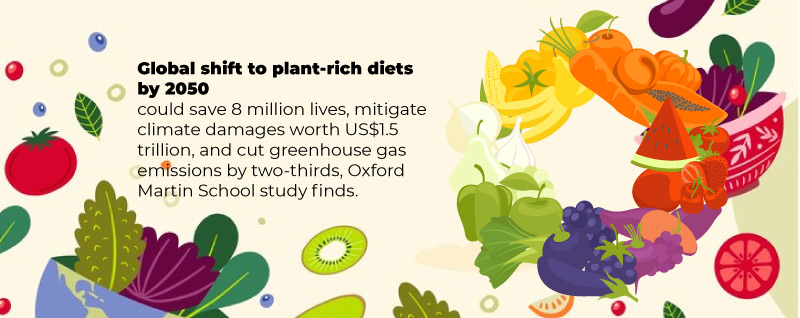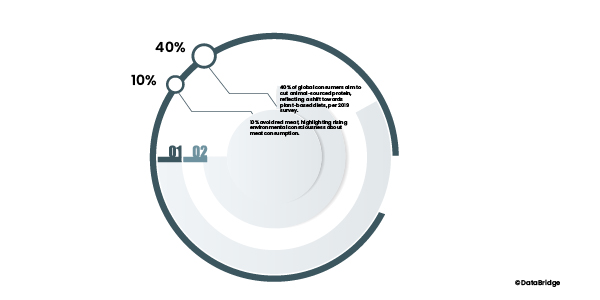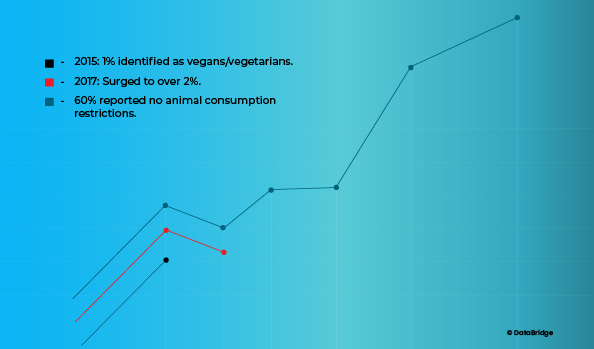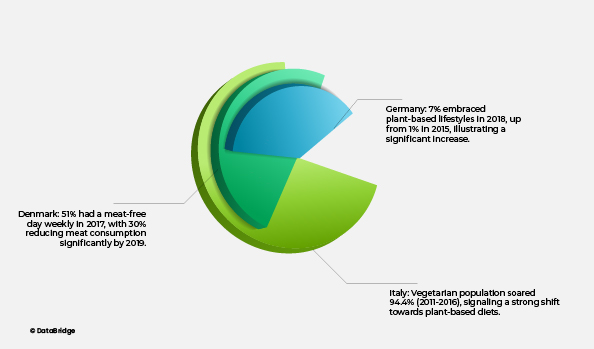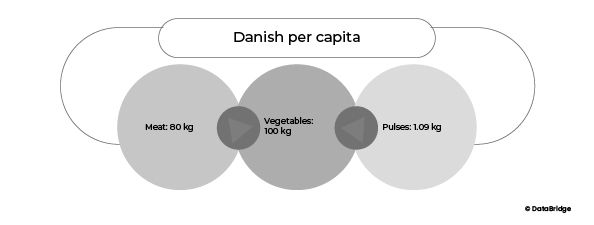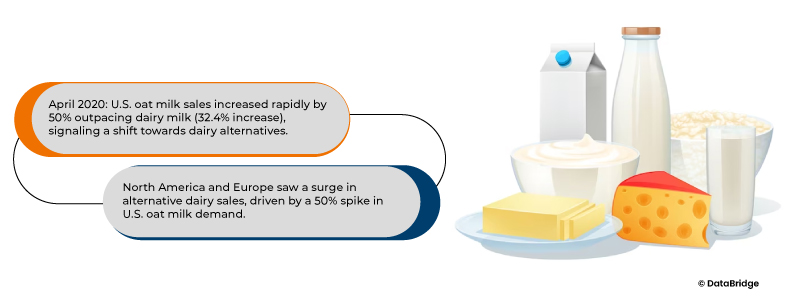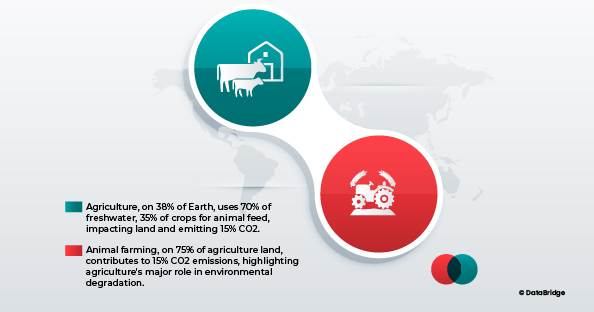In our modern era, where awareness of the intricate link between diet and health is growing, the focus is increasingly turning towards plant-based foods. A heightened consciousness regarding personal well-being and the environmental impacts of dietary choices has led to a significant surge in the adoption of plant-based diets.
The interconnection between diet and health has never been more pronounced, with individuals seeking holistic wellness beyond mere sustenance. Plant-based diets, centered around fruits, vegetables, legumes, nuts, seeds, and whole grains, offer a compelling solution to this pursuit of well-being. As nutritional research consistently underscores the positive impact of plant-based diets on reducing the risk of chronic diseases such as heart disease, diabetes, and certain cancers, the appeal extends beyond individual health to encompass broader ecological considerations.
A study by Oxford Martin School researchers emphasizes that a global shift towards diets rich in vegetables and fruits, with reduced reliance on meat, could save around 8 million lives by 2050. Furthermore, such a dietary transition could mitigate climate damages amounting to US$ 1.5 trillion and curtail greenhouse gas emissions by two-thirds. This exploration goes beyond mere dietary choices, extending to a broader understanding of the ecological consequences of our food preferences. As individuals embrace the notion of nourishing their bodies with plant-based foods, they actively contribute to a more sustainable and eco-friendly planet. This discourse navigates the intricate landscape of plant-based nutrition, unveiling its nutritional richness, environmental benefits, and the diverse palette it offers to those seeking a healthier and more sustainable lifestyle.
Explore the thriving plant-based food market! Uncover key insights and trends with Data Bridge Market Research. Stay informed for strategic decisions in this rapidly growing industry. Click for comprehensive analysis and forecasts:
https://www.databridgemarketresearch.com/reports/global-plant-based-food-market
Consumer Trends: A Shifting Landscape towards Plant-Based Diets
In recent years, two significant consumer trends have emerged, reshaping the landscape for food and ingredient companies. According to a 2019 global consumer survey addressing plant-based diets and climate change concerns, a substantial 40% of consumers reported actively attempting to reduce their intake of animal-sourced protein. Additionally, 10% declared abstaining from red meat altogether, showcasing a growing awareness of the environmental impact associated with meat consumption.
A noteworthy shift in dietary preferences is evident from data illustrating the rise of plant-based lifestyles. In 2015, only 1% of the population identified as vegans or vegetarians, a number that escalated to over 2% in 2017. This trajectory indicates a significant surge in plant-based dietary choices over a short period. Contrarily, 60% of respondents reported no restrictions on animal consumption, emphasizing the coexistence of varied dietary preferences within the consumer landscape.
Region-specific trends further underscore this transformative shift. In Italy, the vegetarian population surged by an impressive 94.4% between 2011 and 2016, reflecting a growing inclination towards plant-based diets. Germany witnessed a substantial increase as well, with 7% of the population adopting mainly plant-based lifestyles in 2018, a noteworthy ascent from a mere 1% in 2015.
The data also illuminates a rise in the adoption of meat-free practices among consumers. In Denmark, 51% of respondents in 2017 reported having at least one meat-free day per week. The trend persisted, with 30% stating in 2019 that they had significantly reduced meat consumption over the past five years, indicating a considerable shift towards plant-centric eating habits.
However, amidst the surge in plant-based preferences, concerns have surfaced regarding ultra-processed plant-based foods. While evidence remains inconclusive, critics argue that the level of processing and consumption patterns associated with these foods may impact their overall healthiness. Notably, healthful plant-based diets have shown protective effects, whereas unhealthful plant-based diets, characterized by convenience and ultra-processed foods, seem comparable to diets of animal origin.
What stands out in this evolving landscape is that while the segment of strict vegans or vegetarians reaches a maximum of 10% of the population, a more considerable 30–40% identify as flexitarians or express an interest in reducing meat consumption. This signals a broader consumer shift towards plant-centric diets, reflecting not just a niche preference but a significant transformation in dietary habits across diverse demographics. As this trend continues to gain momentum, food and ingredient companies are presented with both challenges and opportunities in meeting the evolving demands of an increasingly plant-focused consumer base.
Consumption of Protein in Plant-Based Diets: A Comprehensive Exploration
As the world shifts towards plant-based diets, one of the primary concerns often raised is the adequacy of protein intake. Protein, a fundamental building block for bodily functions, is traditionally associated with animal products. However, a closer examination reveals that plant-based diets can provide ample protein, with numerous benefits for both individual health and the planet.
Plant-based protein sources represent a diverse and abundant array, ranging from legumes and nuts to grains and seeds. This article explores the richness of these sources, emphasizing their vital role in not only promoting individual health but also contributing to a more sustainable and environmentally friendly food system.
Legumes: A Nutrient-Rich Foundation
Legumes, including beans, lentils, and chickpeas, stand out as exemplary plant-based protein sources. Rich in protein, these legumes offer a versatile foundation for plant-based meals. Their protein content is complemented by a bounty of essential nutrients such as fiber, vitamins, and minerals. Beyond contributing to muscle development and repair, legumes play a crucial role in maintaining overall health and well-being.
Nuts and Seeds: Powerhouses of Nutrition
Nuts and seeds, including almonds, walnuts, chia seeds, and hemp seeds, contribute not only protein but also healthy fats and a spectrum of essential nutrients. Incorporating these into daily meals enhances protein intake while promoting overall health and satiety. These plant-based powerhouses add flavor and nutrition to a variety of dishes, showcasing the versatility and culinary appeal of plant-based eating.
Whole Grains: A Versatile Nutrient Profile
Whole grains, such as quinoa, brown rice, and oats, play a pivotal role in plant-based diets by offering a combination of carbohydrates, fiber, and protein. Serving as a versatile base for numerous plant-based dishes, these grains ensure a well-rounded nutrient profile. The inclusion of whole grains contributes to the satiety of meals while providing a nutrient-rich foundation for a balanced diet.
Plant-Based Protein Alternatives: A Growing Trend
The market has witnessed a surge in plant-based protein alternatives, catering to the increasing demand for convenient and nutritionally dense options. Pea protein, soy protein, and products like tofu and tempeh have become staples in the plant-based repertoire. These alternatives not only offer protein but also introduce a variety of textures and flavors, expanding the culinary possibilities of plant-based eating.
Digestibility and Bioavailability: Addressing Concerns
The digestibility and bioavailability of plant-based protein sources have been subjects of inquiry, often in comparison to their animal-derived counterparts. However, a diverse range of plant-based foods, when thoughtfully incorporated into the diet, can easily meet protein needs. Combining different protein sources throughout the day ensures the intake of a complete array of essential amino acids, dispelling concerns about the adequacy of plant-based protein.
Protein Consumption in Developed Countries: A Snapshot
Examining the consumption of protein-rich foods per capita in developed countries provides insights into dietary patterns. According to FAO data, Danish per capita meat consumption is approximately 80 kg, with vegetables at 100 kg and pulses at 1.09 kg. The data underlines the variation in protein sources, emphasizing the need for a diversified and plant-centric approach to address both health and sustainability concerns.
The Protein Puzzle: Balancing Global Trends
Protein consumption is entwined with global trends such as climate change, overconsumption of resources, population growth, urbanization, and an increase in life expectancy. This interconnection defines a "Protein Puzzle," encompassing complex issues and trade-offs. Animal agriculture, a significant source of protein, is resource-intensive, contributing to deforestation and greenhouse gas emissions.
In brief, the exploration of plant-based protein sources transcends individual health benefits. It intertwines with global challenges, offering a sustainable solution to the protein puzzle. As consumers increasingly recognize the nutritional richness and environmental advantages of plant-based diets, a transformative shift towards a more plant-centric food system becomes not only a personal choice but a collective step towards a nourished planet.
Impact of COVID-19 on Plant-Based Food Market
The COVID-19 pandemic has ushered in significant changes for the plant-based food industry, prompting shifts in consumer preferences and highlighting the connection between public health and animal meat consumption. As the traditional meat processing industry faced disruptions, leading to the closure of slaughterhouses, plant-based alternatives experienced a surge in demand. In the U.S., meat substitute sales soared by 200% in the week ending April 18, 2020, reflecting a substantial shift in consumer behavior amid the global crisis.
The Dairy Alternative Industry witnessed a notable upswing in sales, with alternative dairy products gaining momentum in North America and Europe. In April 2020, oat milk retail sales in the U.S. surged by an impressive 476.7%, while dairy milk sales increased by 32.4% compared to the previous year. This surge, attributed to increased demand for oat milk and nutritional plant-based butter, showcased a unique opportunity for dairy alternatives.
Moreover, the pandemic accelerated the "Free-From" trend, with consumer preferences leaning towards soy and gluten-free products. Soy and gluten-free diets, driven by health benefits and therapeutic considerations, gained popularity. Rising incidences of food sensitivities and an increase in coeliac disease diagnoses contributed to the growth of soy and gluten-free food products, impacting the soy and wheat protein-based food market.
In essence, the global crisis has not only underscored the vulnerabilities of traditional meat processing but has also presented a substantial opportunity for the plant-based food sector, reshaping consumer choices and industry strategies.
Negative Impact on Eco-Systems: A Consequence of Animal-Based Protein Production
The production of animal-based protein, particularly in the form of meat, exacts a substantial toll on the earth's ecosystems, posing a formidable challenge to the delicate balance of planetary boundaries. Earth's ecosystems, classified into nine planetary boundaries, are at risk or already overused due to human activities, with agricultural production significantly contributing to this predicament.
Agriculture, covering 38% of the Earth's surface, is a key player in environmental degradation. It withdraws a staggering 70% of freshwater, and 35% of global crop production is directed toward animal feed. The combination of land for feed production and grazing results in 75% of agricultural land being utilized for raising animals. The impact extends further, with animal-based protein production alone contributing to 15% of annual CO2 emissions.
European livestock, a major player in the production of animal-based protein, is often fed with protein-rich feeds, including those imported from South America, particularly soy. The link between deforestation in South America and land-use changes associated with soy and livestock production exacerbates the environmental toll, contributing to climate change.
The inefficiency of land use for animal-based protein production becomes starkly evident when compared to plant-based alternatives. The same amount of agricultural land that yields a specific quantity of meat could be used up to ten times more efficiently to produce plant protein, potentially feeding 10 to 20 times more people. Shifting dietary focus away from meat has been identified as a crucial strategy for reducing environmental impact.
To put it briefly, the negative impact on ecosystems stemming from animal-based protein production underscores the urgency for re-evaluating dietary choices and promoting sustainable practices. A shift towards plant-based diets not only addresses the environmental challenges associated with current consumption patterns but also contributes to the preservation of planetary boundaries critical for the health of our ecosystems.
Conclusion
Nourishing the planet and our bodies through plant-based eating is a powerful and sustainable choice with far-reaching benefits. As we navigate an era of increased awareness about health and environmental sustainability, plant-based diets offer a compelling solution. From diverse nutritional profiles to culinary creativity, the world of plant-based foods is rich and rewarding.
By embracing the benefits and diversity of plant-based foods, individuals can contribute to their well-being while making a positive impact on the planet. As we continue to explore the intersection of nutrition, environmental consciousness, and culinary innovation, plant-based diets emerge as a pathway to a healthier and more sustainable future for both individuals and the planet.
